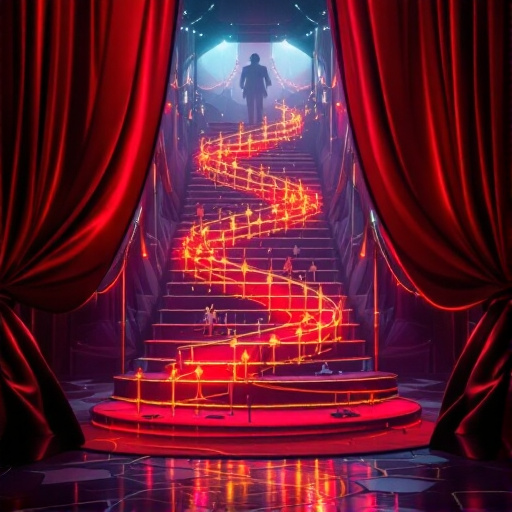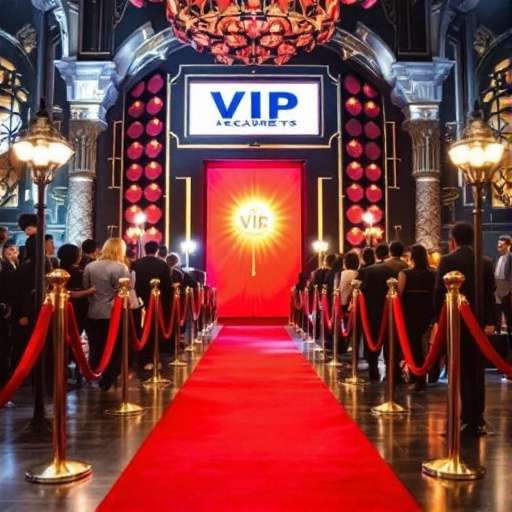Featured Articles
- 9 Game-Changing VIP Experiences You Never Knew Existed That Will Redefine Luxury and Influence Buyer Spending
- Beyond the Velvet Rope: The Rise of Virtual VIP Experiences in a Post-Pandemic World
- The Hidden Allure of VIP Experiences: Why Exclusive Access Could Turn You into a Social Pariah
- Top 6 Cutting-Edge Smart Wristbands for VIP Access and Ultimate Event Control in the Last Five Years
- Unlocking the Secrets of Unconventional VIP Experiences: Beyond the Red Carpet to the Unknown
The Hidden Allure of VIP Experiences: Why Exclusive Access Could Turn You into a Social Pariah
The Hidden Allure of VIP Experiences: Why Exclusive Access Could Turn You into a Social Pariah
Exclusive access to VIP experiences can be thrilling, offering a sense of glamour and prestige. However, the allure of such privileges can inadvertently alienate you from your peers and lead to unexpected social consequences.
The Fascination with VIP Experiences
As a 25-year-old writer navigating a world rich in exclusive events, I can’t help but marvel at the glittering sphere of VIP experiences. Whether it’s front-row seats at concerts, backstage meet-and-greets with top performers, or special access to glamorous parties, there’s no denying the allure of elite experiences. In fact, a recent survey by Eventbrite found that 60% of millennials believe VIP experiences enhance the value of their social lives.
The Envy Factor
However, while indulging in VIP privileges can give you the proverbial “green light” to hours of fun, it can also shine a spotlight on the darker side of social dynamics. The truth is when you flaunt your exclusive access, it can breed envy—one of the most potent and destructive emotions within any social circle. A study published in the Journal of Personality and Social Psychology reveals that envy can erode relationships over time, pushing friends apart and elevating feelings of isolation amongst peers.
When Fun Turns into Isolation
The dichotomy between feeling special and becoming a social pariah is a delicate line to walk. Take, for example, Sarah, a 30-year-old event planner from New York City. After gaining access to the Met Gala through her industry connections, she posted dozens of pictures on social media, showcasing the glitz and glamour. Initially, her friends celebrated her achievement, but over time, their excitement turned into resentment. “It felt like I lost touch with my friends,” Sarah reminisces. “They would scroll past my posts with a mix of awe and irritation.”
Case Study: The Velvet Rope Effect
The Velvet Rope Effect is a phenomenon where exclusive access creates a barrier between those with privileges and those without. In 2019, a group of influencers faced backlash after sharing VIP experiences in such a way that made their followers feel diminished. Social media reactions were mixed; while some were inspired, others accused them of being out of touch. Liza, a 19-year-old college student, said, “I used to look up to them, but when they started flaunting their lives, it felt like they were rubbing it in our faces. It’s like they were on a different planet.”
Exclusivity: The Double-Edged Sword
Exclusivity can morph from a badge of honor to a mark of social isolation. A 2021 study by Harvard University concluded that individuals who frequent VIP events tend to feel more disconnected from their communities. The hidden cost is clear: every time you spin the wheel of privilege, you might just end up on the losing side of human connection. “I thought my VIP status would bring me closer to others, but it just made me feel lonely,” shares Jonathan, a 28-year-old tech entrepreneur.
Social Media: The Double-Edged Sword of FOMO
Entering the VIP realm often comes with the unspoken expectation to share. Social media platforms such as Instagram or TikTok amplify the “fear of missing out” (FOMO) culture, exacerbating feelings of alienation. According to a study conducted by the American Psychological Association, 60% of individuals aged 18-30 report feeling excluded from social circles when they view their friends' highlight reels of extravagant experiences. It’s as though being in the VIP section comes with an uninvited guest—anxiety and loneliness.
The Comfort Zone: Breaking Away
Having VIP access might feel like being in an exclusive club, but what many fail to realize is that this status could isolate you from friends who might not share the same experiences. Enter Jessica, a 24-year-old influencer who once tweeted, “Being famous isn’t everything. I just miss having brunch with my friends.” She candidly acknowledged that her exclusive events often made her feel undeserving of her friendships, alienating her from her circle.
What Can We Do? Finding Balance
The challenge lies in finding a balance between enjoying our exclusive experiences and maintaining authentic connections. Instead of boasting about your latest VIP encounter, why not make it inclusive? Invite your friends along, or share the stories behind the experiences that made them meaningful. Creating opportunities for shared joy can keep the bonds alive even when the events themselves are fancy.
The Power of Connection Over Status
Ultimately, the allure of VIP experiences may spark short bursts of excitement, but lasting happiness often comes from meaningful connections. According to research led by noted psychologist Shawn Achor, people who prioritize social connections experience a “happiness advantage” in their lives. Shifting your focus from exclusivity to inclusivity can create a community where everyone feels valued and appreciated.
Closing Thoughts: Beyond the Velvet Rope
In a world constantly driven by the allure of exclusivity, being a VIP may seem like the ultimate badge of honor. However, as we’ve explored, the social pitfalls that accompany this status can lead to feelings of isolation more often than connection. It's crucial to reflect on where we place our values and how we can ensure that the thrill of exclusivity doesn’t lead us to become social pariahs.
So, the next time you find yourself in the glow of a VIP experience, take a moment to consider how you can bridge that gap between exclusive access and your social connections. After all, isn't sharing in joy what makes experiences truly grand?
In the end, navigating VIP experiences requires self-awareness, intentionality, and a commitment to nurturing the relationships that matter most. As the saying goes, “You can’t take it with you,” so why not make the most of it by bringing others along for the ride?




